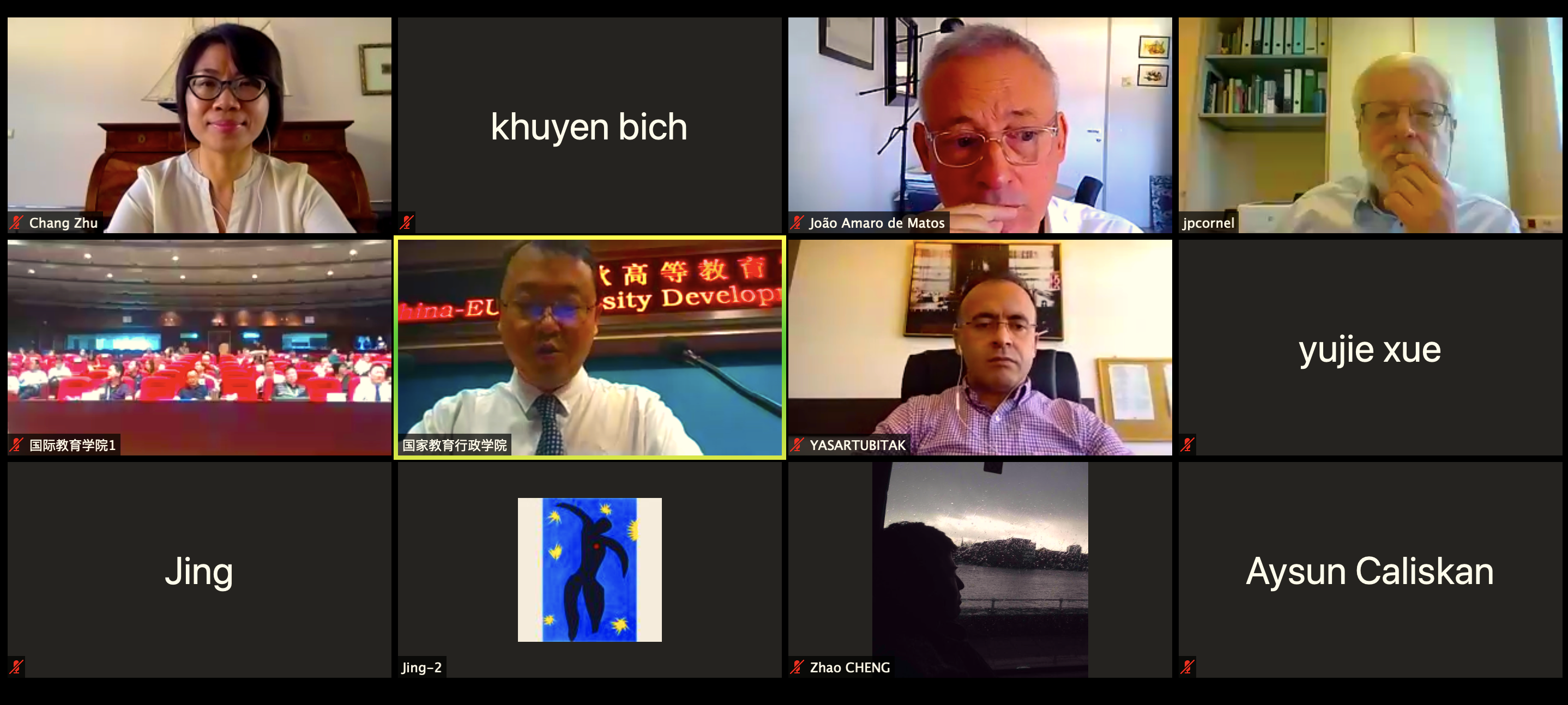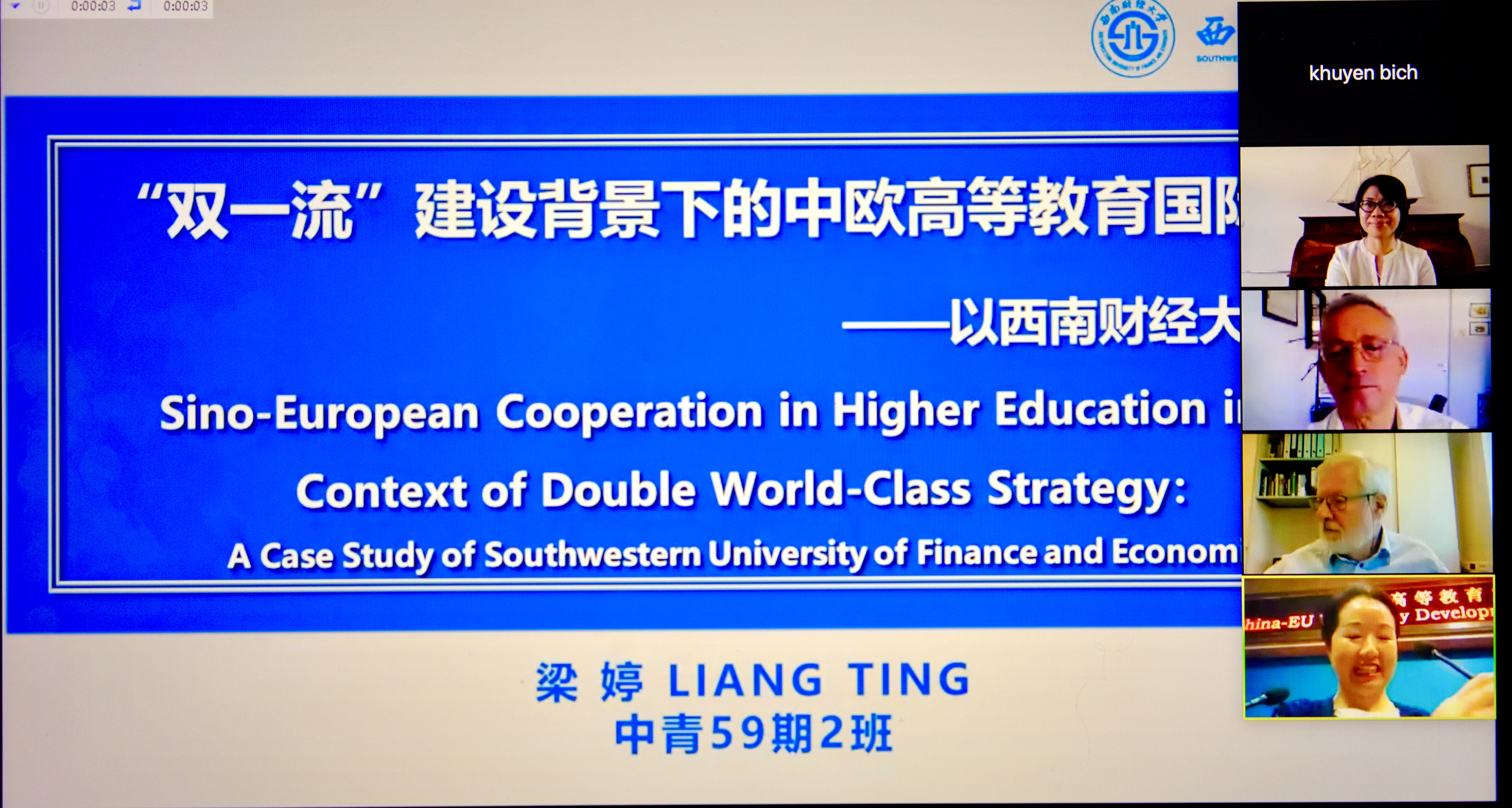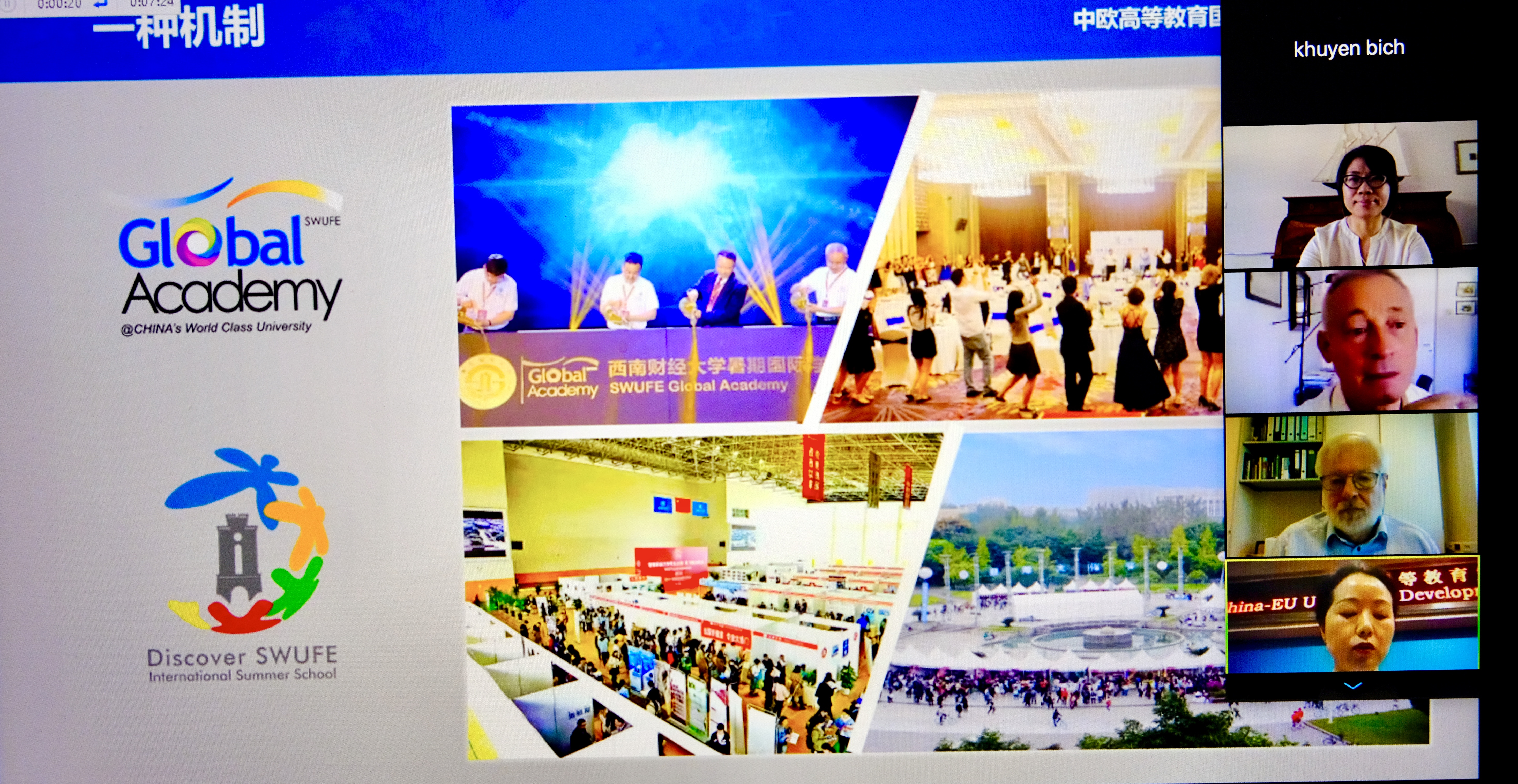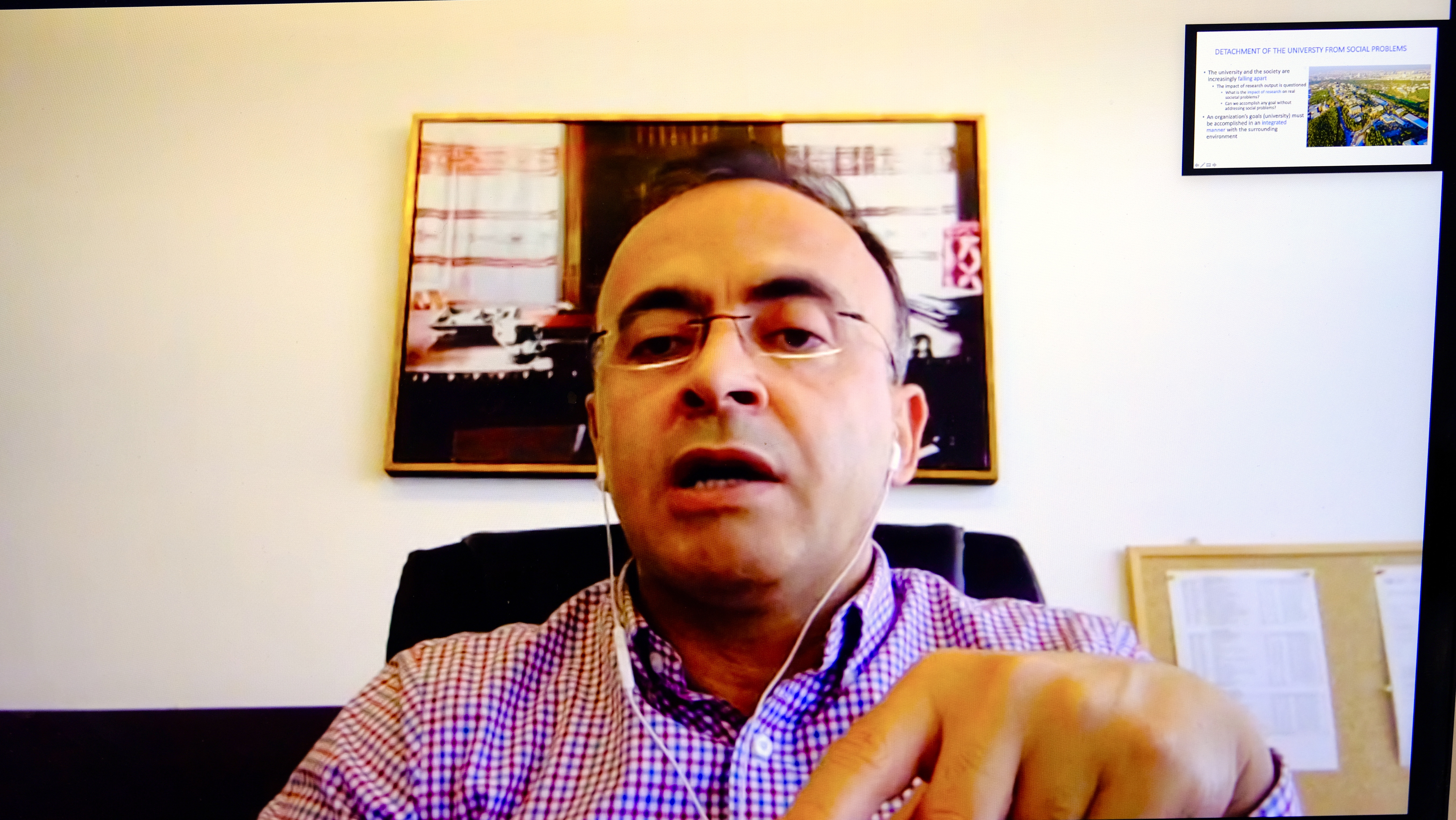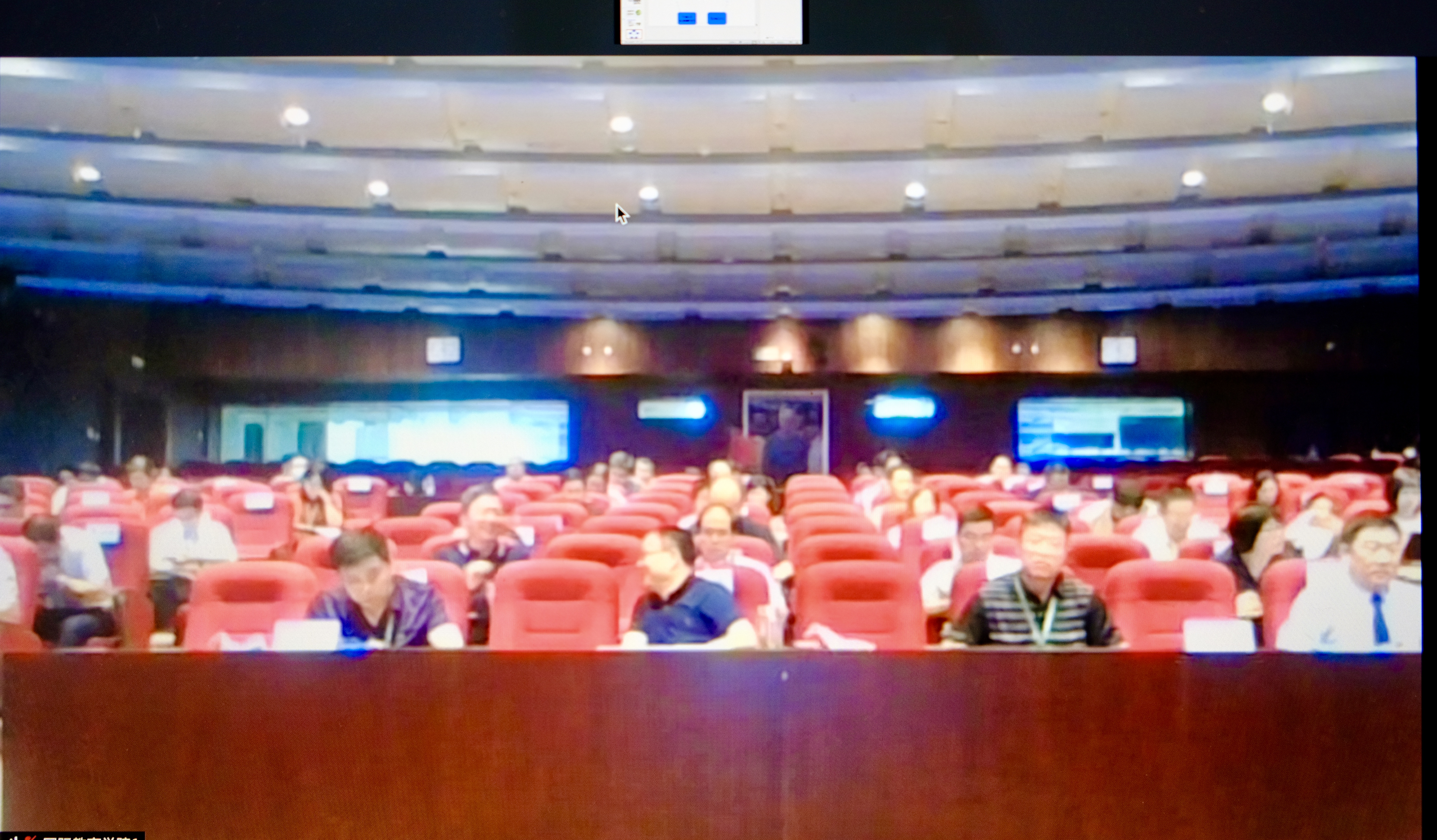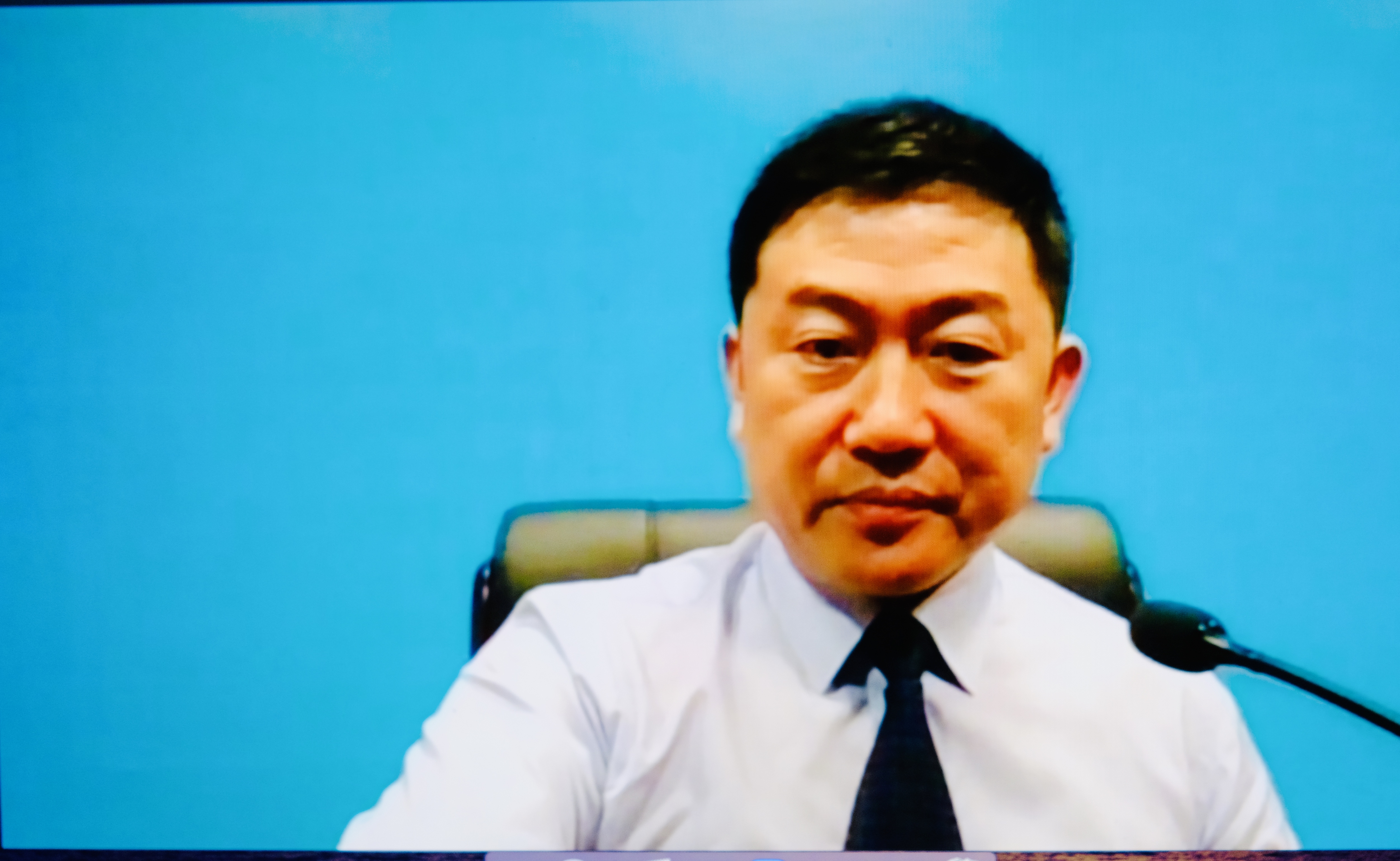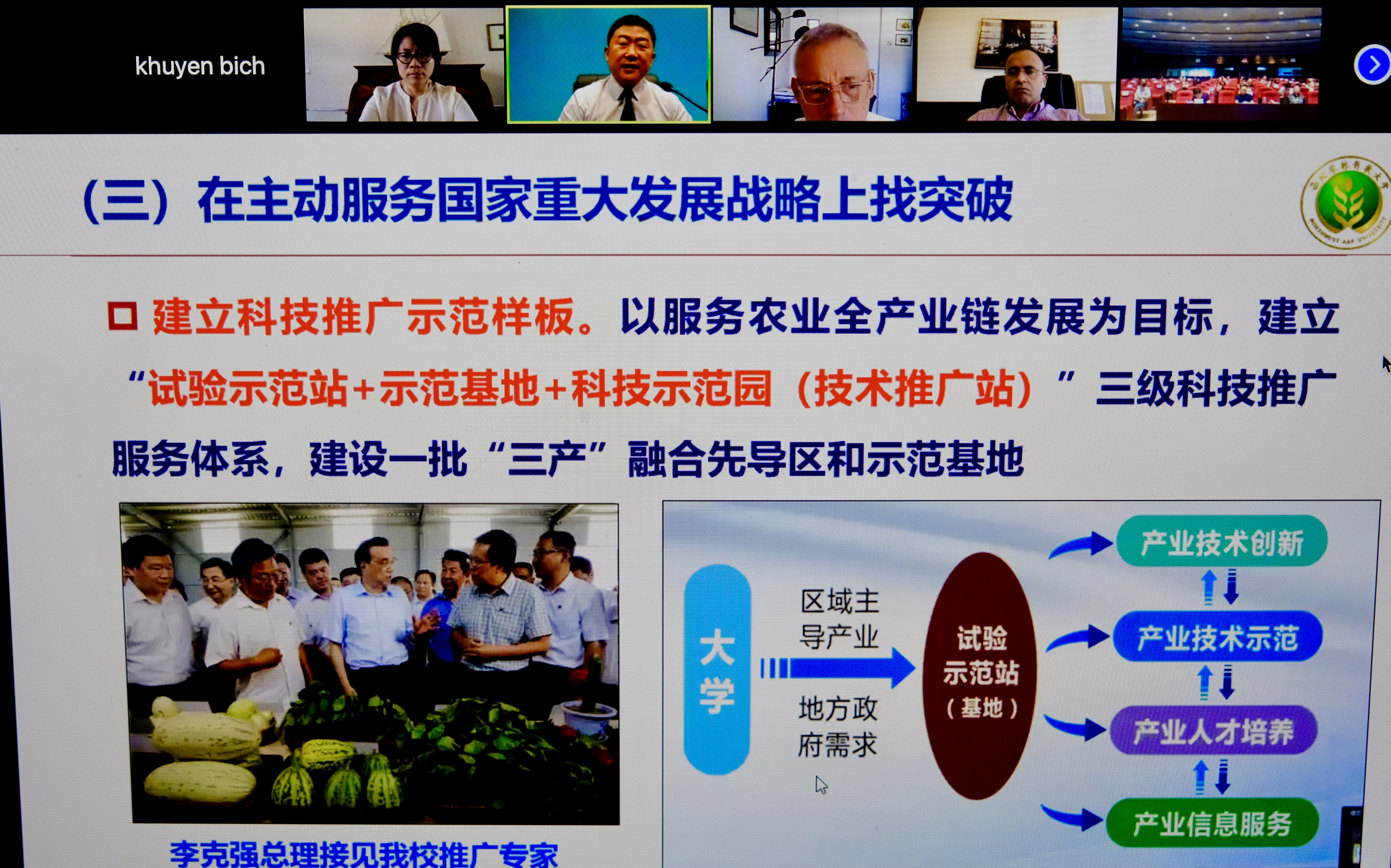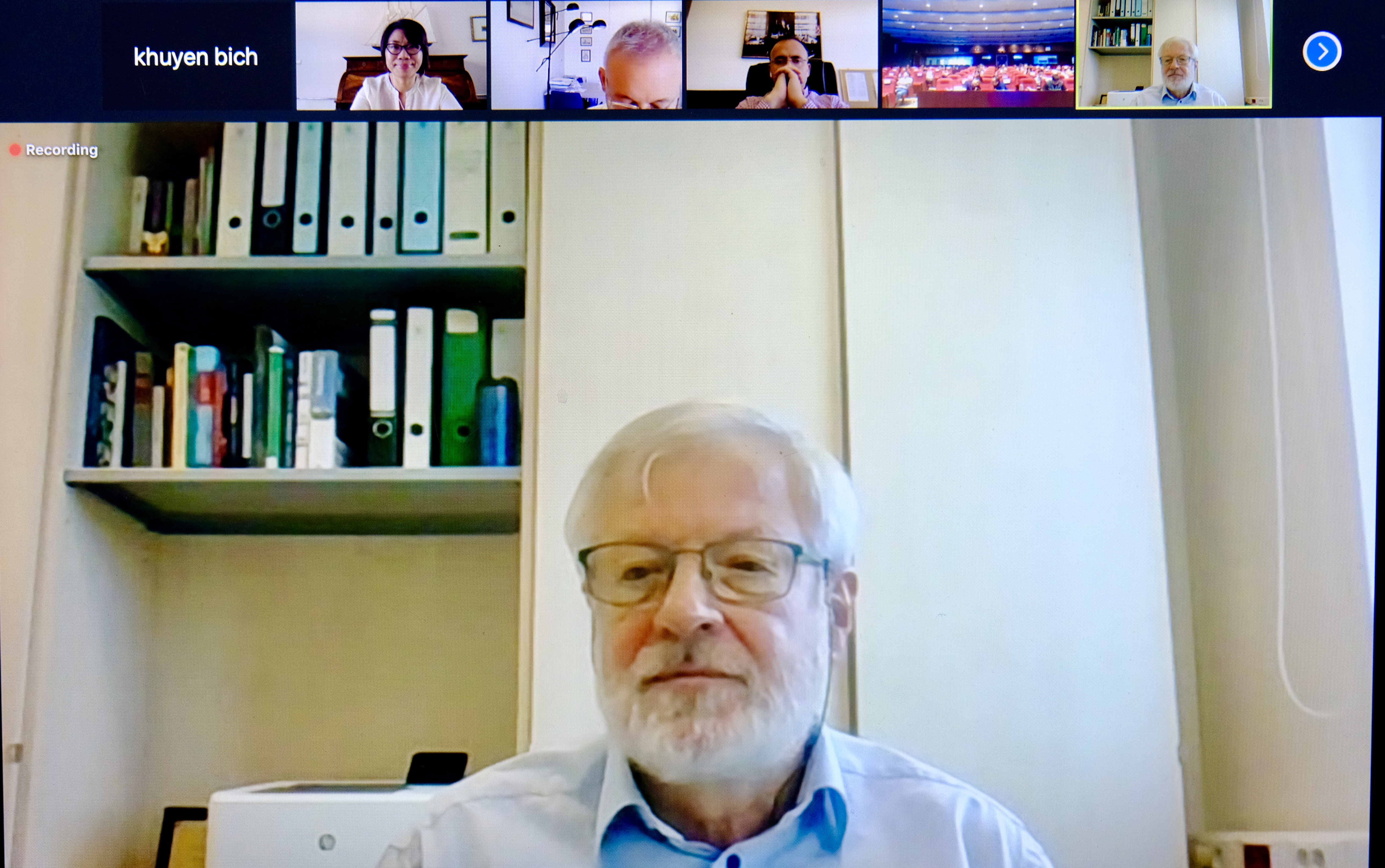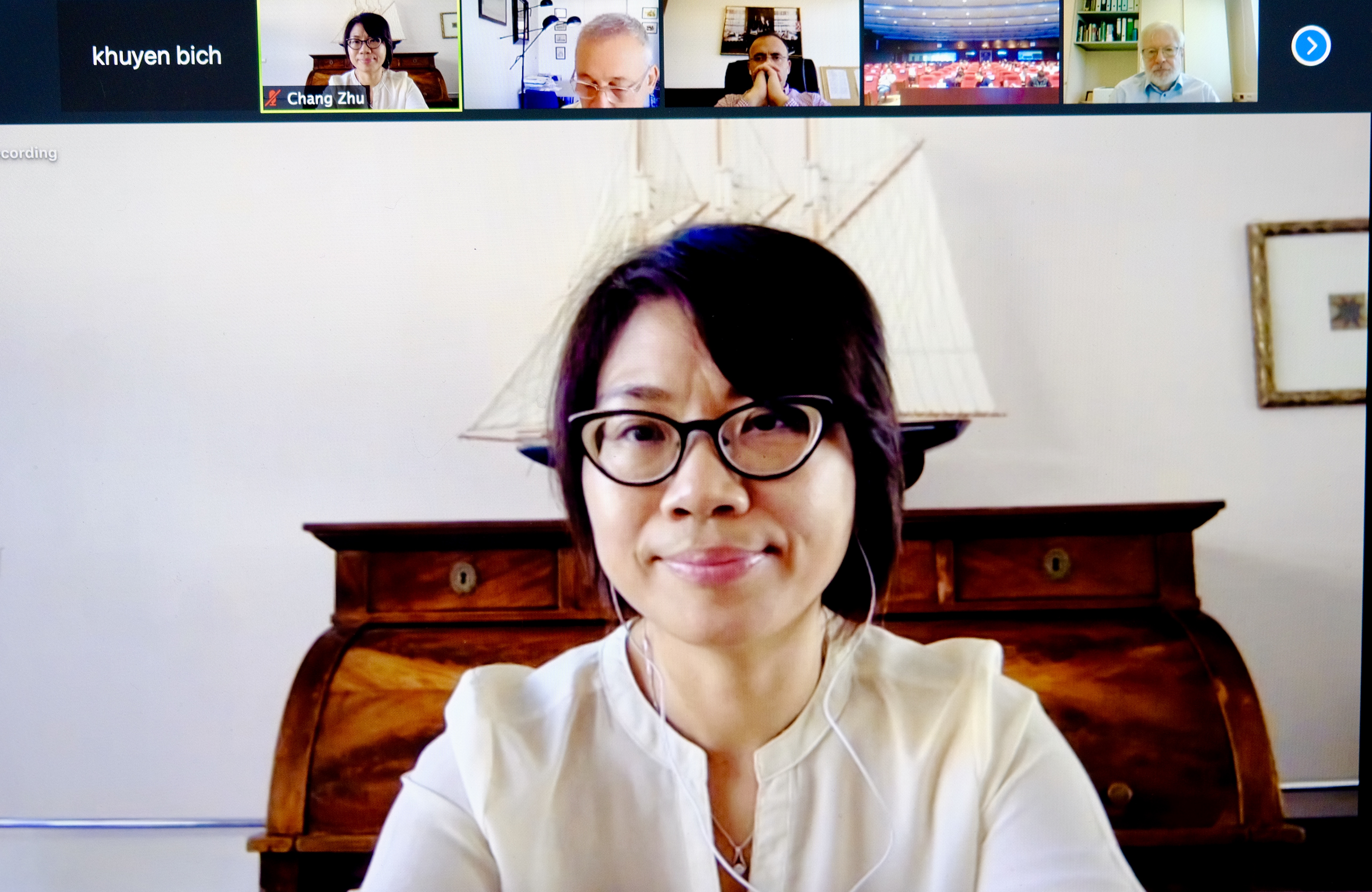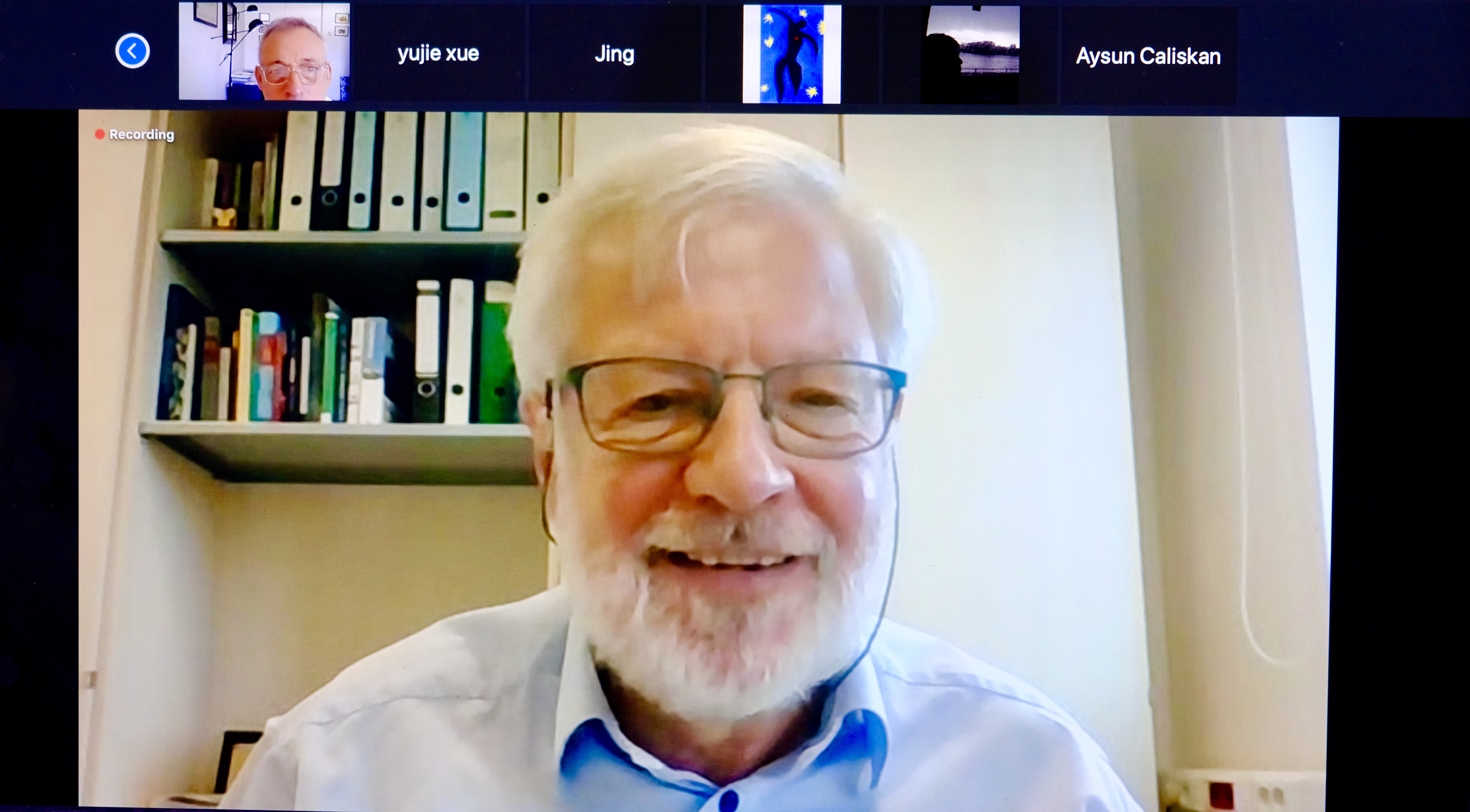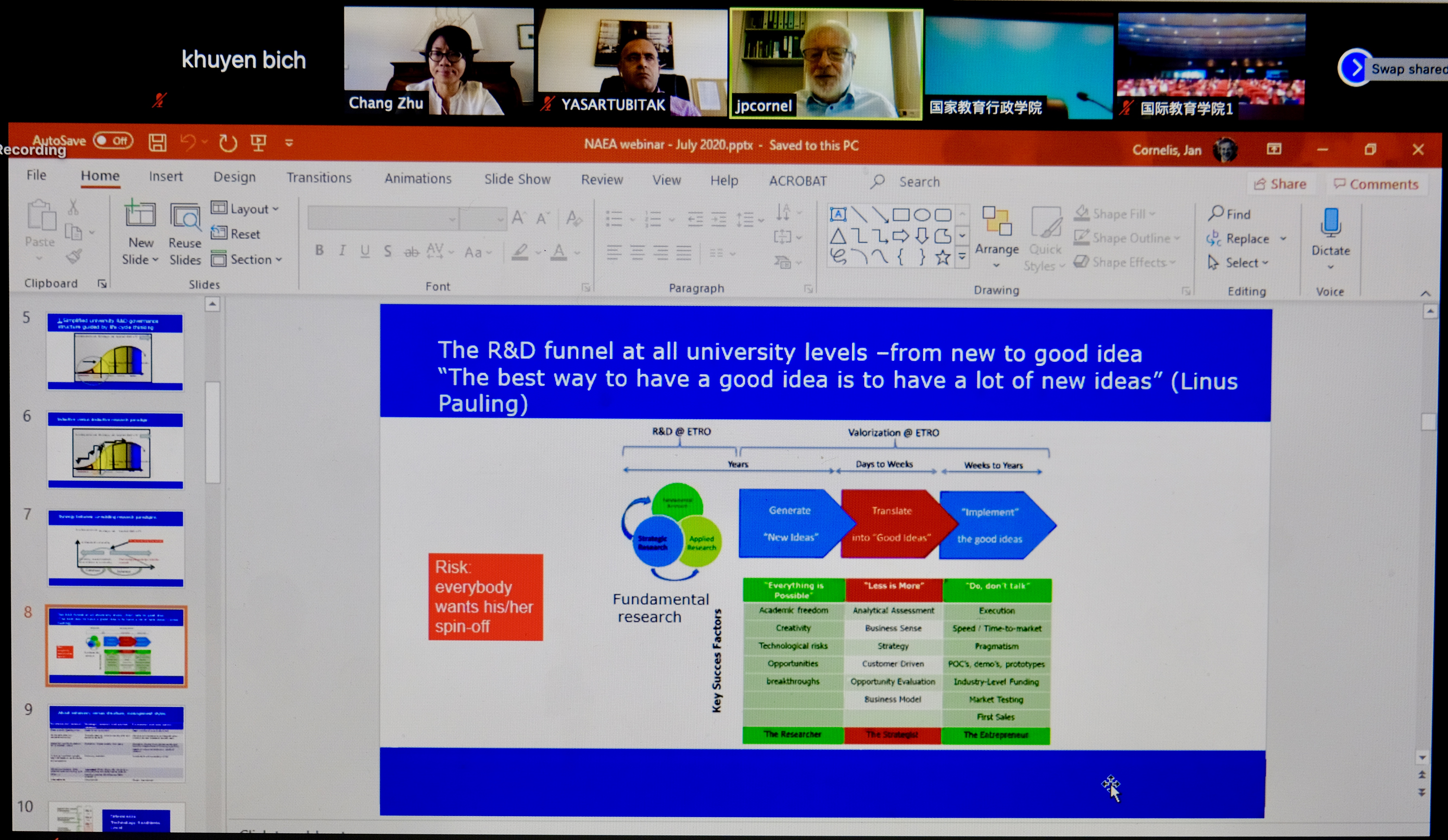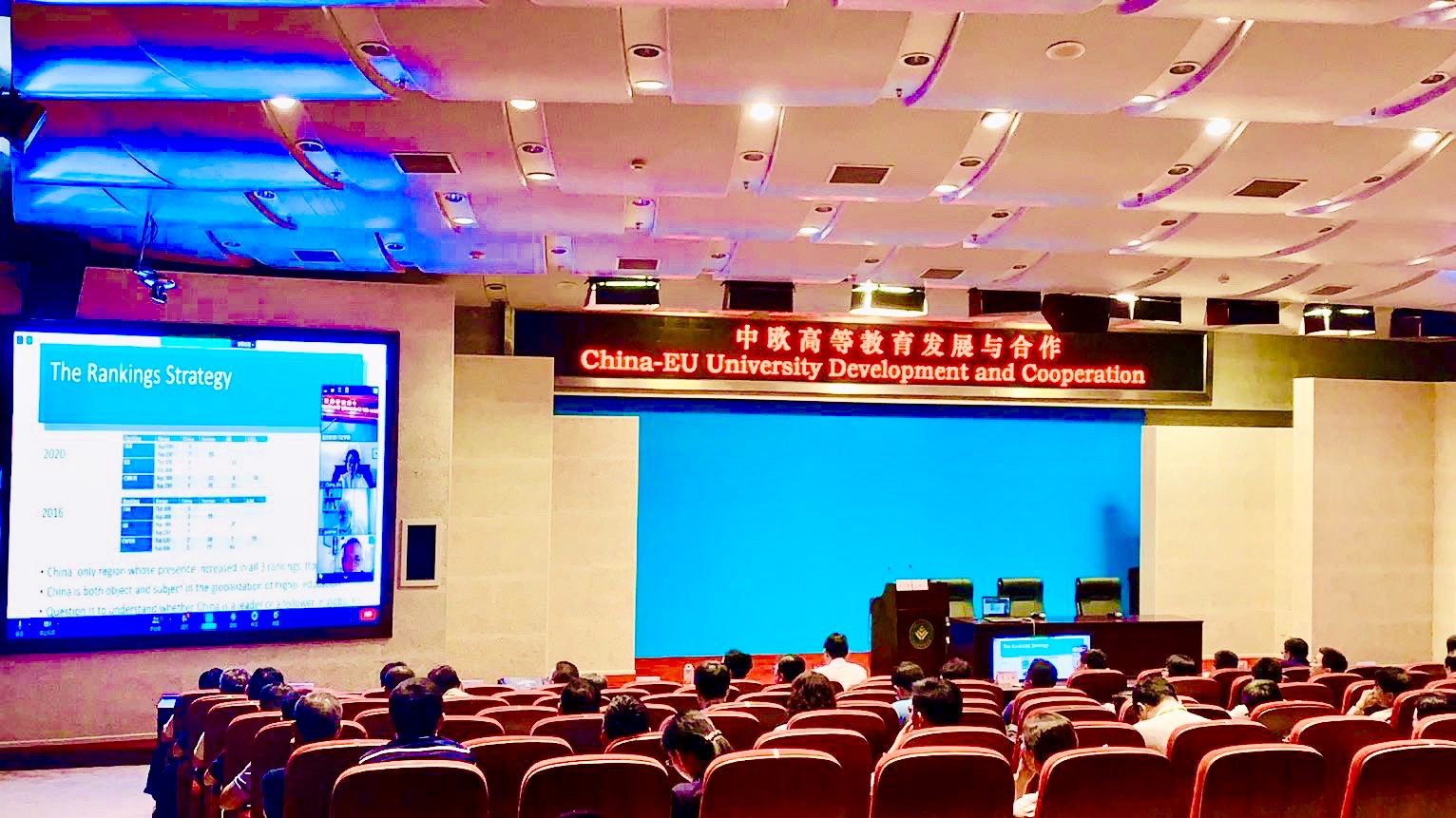WEBINAR: China-EU University Development and Cooperation

The webinar on China-EU University Development and Cooperation will take place at 16.00 (Beijing time) on 29th July 2020
10:00 AM Brussels 9:00 Lison, 11.00 Ankara
PROGRAMME (Beijing time)
Time: 29 July, 2020,Wednesday
Venue: Guesthouse, NAEA
Chair:Prof. LI Mingze, Director, Academic Development, Northeast Forestry University
16:00-16:15 Opening & Welcome
16:15-16:30 Leading university internationalization: The future of Euro-Chinese academic cooperation
Prof. Joao Amaro de Matos, Vice-Rector International Development, Universidade Nova de Lisboa (NOVA)
Both China and Europe have active strategies to internationalize their Higher Education systems. We analyze the cultural and institutional constraints of these strategies in both territories, and their impact in the international profile of their academic leaderships. We focus on the practice of internationalization in Europe and in China, the strategic goals underlying these practices, and the implications to the internationalization strategies in constraining the choices and actions of academic leaders. We contribute to the literature on HE leadership by analyzing the points of conflict and opportunities of growth, suggesting pathways of sustainable collaboration between leaders of both regions.
16:30-16:45 China-EU University cooperation in Double First-Class construction: a case study of Southwestern University of Finance and Economics
Prof. Dr. LIANG Ting, Director of Division of International Cooperation, Southwestern University of Finance and Economics
The Double-First Class initiative is the inevitable path in China to leap from a large country to a strong country in higher education. And a fundamental aspect of the initiative is international cooperation. International cooperation is a natural feature and mission of higher education and a key function of the university and a responsibility to the society, which will encourage institutional reforms and breakthroughs in the higher education system. By analysing Southwestern University of Finance and Economics (SWUFE) international cooperation, particularly that with European universities, this study discusses how universities can use international exchange and cooperation to support talent development, scientific research and service to society in the context of the Double First-Class initiative, as well as envisions future trends and priorities.
16:45-17:00 The role of the universities in social change and development: Challenges and recommendations
Prof. Dr. Yasar Kondakci, Dean of the Graduate School of Social Sciences, Middle East Technical University (METU)
The universities, as the epicenters of scientific and technological capacities of every society are expected to play a central role in confronting and addressing the societal problems. However, compared to the niche they occupy in using societal resources, they play a very limited role in social change. It can be argued that the dominant approaches for performance evaluation of the universities (e.g., rankings) form an important factor in curbing social innovation capacity of the universities. The recent COVID-19 crisis advances additional challenges for the universities to deal with societal problems. This brief speech discuss the state of universities? contribution to social change and innovation, elaborate on the challenges that the universities confront with in social change and innovation, and advance some recommendations for improving social change capacity of the universities.
17:00-17:15 Discipline construction in serving national strategy: an analysis of construction of new agricultural discipline
Prof. Dr. FANG Yulin, Director of Division of Science and Technology Extension, Northwest A&F University
New technological and industrial revolutions have put forth new requirements to the reforms of the Chinese higher education system. National strategies for the new era characterised by food safety, human health, eco civilisation and rural revitalisation, has given higher education in agricultural and forestry disciplines new missions. The development of “new agricultural disciplines" in service of new agriculture, new countryside, new farmers, and new ecology has become a must. This study takes Northwest Agriculture and Forestry University as example, to illustrate agricultural and forestry universities practices in structural reforms of disciplines and programmes, talent development models, active service to key national strategies, the future of agriculture and the organisational models of disciplines, and proposes some thoughts on using discipline development at universities to serve national strategies.
17:15-17:30
Prof. Dr. Jan Cornelis, former VUB Vice-Rector International Relations, VUB
A helicopter view is given on the evolution of the societal embedding of universities. This evolution has implications on the university Research and Development (R&D) governance. Without going into specific implementations, first a simplified governance paradigm is analyzed that has emerged from the triple helix model. Nowadays more and more actors are involved in the interface between university and society and they are getting more intimately integrated within the university ecosystem. The interaction, knowledge sharing and technology transfer opportunities are increasing and inherently becoming international, but they are also more and more complex to manage. Some possible sustainable pathways through this jungle are discussed. The focus of the study is R&D and the shared responsibility of government and university.
17:30-18:00 Discussions
Link to join the webinar
Zoom Meeting
The meeting programme is available in English or Chinese
PPTs:
Northwest A&F University-Prof. Fang Yulin
Southwest University of Finance and Economics-Prof. Liang Ting
Read also the event news: https://www.naea.edu.cn/gjjyxzxy/17874/97303/index.html
